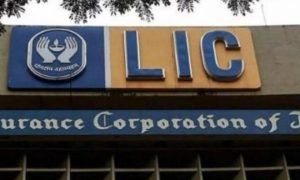Fixed deposits are considered safe investments, providing risk-free and guaranteed returns. Both banks and corporates offer fixed deposits, with corporate ones typically having shorter durations. The choice between bank and corporate fixed deposits depends on various factors.
Read More: Should you invest in PPF? Top benefits of Public Provident Fund you shouldn’t miss
Bank FDs are often seen as safer due to government guarantees and DICGC insurance, offering security up to Rs 5 lakh. On the other hand, corporate FDs lack government backing, making their safety contingent on the financial health and reputation of the issuing company. Investors should weigh these below mentioned factors when deciding between the two options.
The return on investment is a crucial consideration when choosing any investment, including fixed deposits, where the Rate of Interest plays a significant role. In contrast to banks, corporate fixed deposits often provide higher and guaranteed interest rates. Opting for corporate fixed deposits can yield better returns over the tenure, especially as they frequently offer both cumulative and non-cumulative interest-based payouts.
With cumulative interest payouts, reinvestment occurs, resulting in compounding returns and potentially enhanced payouts.Tenure periodMany individuals opt for Fixed Deposits as a long-term investment, especially in their later years, seeking a tranquil retirement. The duration of the investment is crucial, as it determines when investors will receive returns.
Corporate fixed deposits typically have tenures ranging from six months to 5 years. In contrast, bank fixed deposits offer more flexibility with tenures spanning from months to years, surpassing the options provided by corporate fixed deposits.
Read More: How to open a PPF account for tax exemption purposes? A step-by-step guide
For those looking for extended investment periods, bank fixed deposits are preferred over corporate fixed deposits.
Risk Investment Prior to investing, it’s prudent to assess the level of risk and one’s risk tolerance. While fixed deposits are generally secure, they aren’t entirely risk-free in the long term. Corporate fixed deposits, being unsecured, pose a risk of company insolvency. However, they remain unaffected by market fluctuations.
In contrast, bank fixed deposits are secure and low-risk, with the RBI providing coverage up to 1 Lakh rupees per fixed deposit, and sometimes up to 5 Lakhs in specific cases.TaxationFixed deposits are subject to taxes, but there are specific tax benefits to consider.
When it comes to the best option for tax-saving, bank fixed deposits generally outperform corporate fixed deposits. Many banks offer tax benefits under Section 80C of the Income Tax Act with a lock-in period ranging from five to ten years.
It’s essential to note that early withdrawal or interest exceeding Rs 10,000 may lead to tax deductions directly from the source by the bank.

































